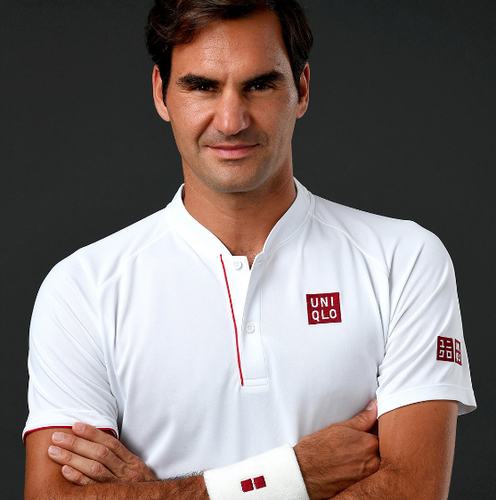
While Andy Murray's withdrawal from the Wimbledon 2018 field has certainly caused some stir, the biggest talking point of the tournament so far is more about textiles rather than tennis. It is about the emperor's new clothes. Or to be more specific, about the emperor's new deal with Japanese fashion brand Uniqlo.
After 24 years of partnership with Nike, 'King' Roger Federer has decided to walk away from his lucrative sponsorship deal with Nike. The 37-year-old star player of the ATP tour has repeatedly emphasized that he felt the more lifestyle-oriented Uniqlo was a better fit with regard to the inevitable life after tennis. Federer is known to have a yen for fashion. A personal friend of Vogue editor in chief Anna Wintour, Federer frequently attends runway shows, and supposedly aspires to dip into fashion after his tennis career. Echoes of Björn Borg? Maybe.
However, the fact that Nike lose their star player for what is arguably the most important tournament in tennis has further implications. As reports suggest, the Federer-Uniqlo deal is worth 300 millon USD, and with a duration of 10 years it will extend well beyond Federer's active career as a professional ATP player. This could be interpreted as a sign of a lack of willingness on Nike's behalf to commit to the company's star performers as they approach the twilight of their careers. It is a worrying signal for long-time brand ambassadors such as Tiger Woods, LeBron James, and obviously Federer's biggest rival Rafa Nadal.
Moreover, Federer is said to have been frustrated by the constraints that came along with committing to Nike. The 8-time Wimbledon champion has claimed that he was still hoping for Nike to offer him a new deal before Uniqlo approached him. A key issue in Nike's failure to offer Federer an attractive contract might have been the dispute over the famous "RF" logo, for which Federer wants to claim ownership. Nevertheless Federer is hopeful that he will be able to maintain a good relationship with Nike. It will be interesting to see whether Nike will budge an inch in that matter.
All in all, Federer's departure from Nike is symptomatic for the company's difficulties in dealing with its star athletes. The loss of Federer as the prime brand ambassador of the tennis branch comes just two years after Nike's catastrophic failure to sign NBA star Stephen Curry, who ultimately agreed terms with up-and-coming sports brand Under Armour. Since then Nike has failed to deliver in terms of signing new talent or expanding its portfolio.
Is the sports world witnessing a calculated strategy or simply negligence in Nike's handling of some of its most important brand ambassadors? Is Nike jeopardizing its position as the prime outfitter in tennis? Join the discussion!
Comments